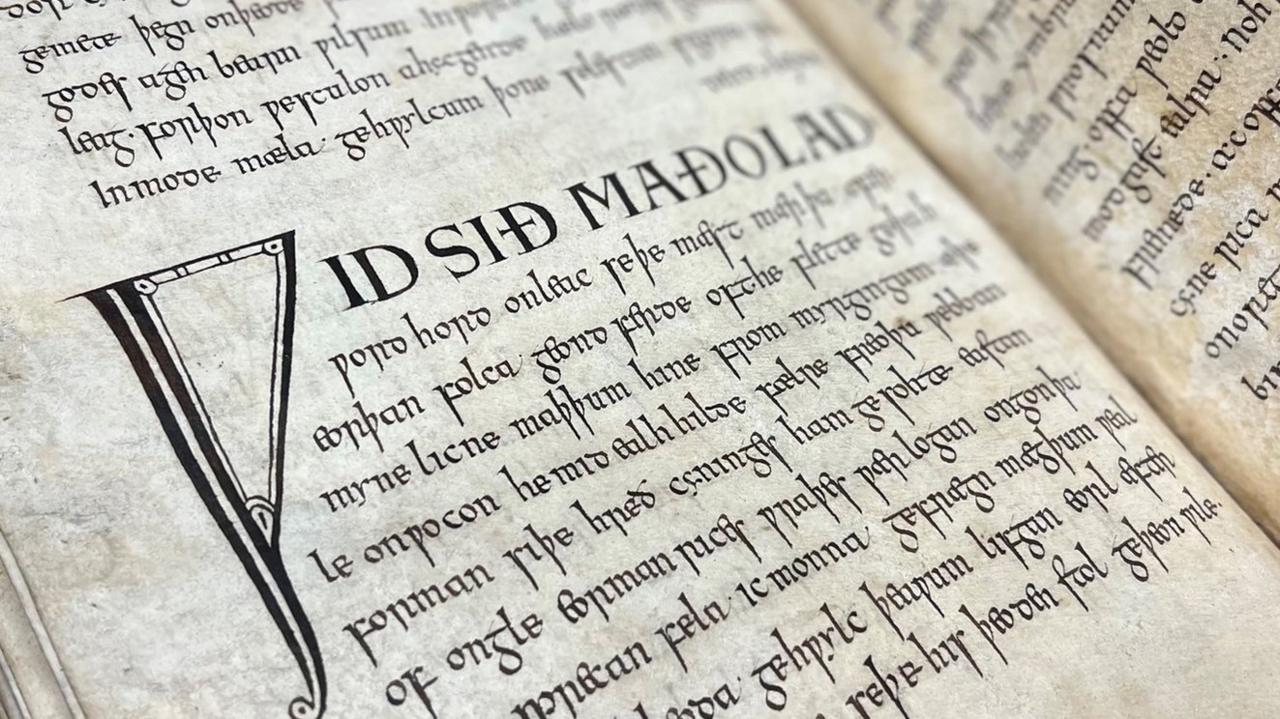Lydford Pennies at Museum of Dartmoor Life
- Published
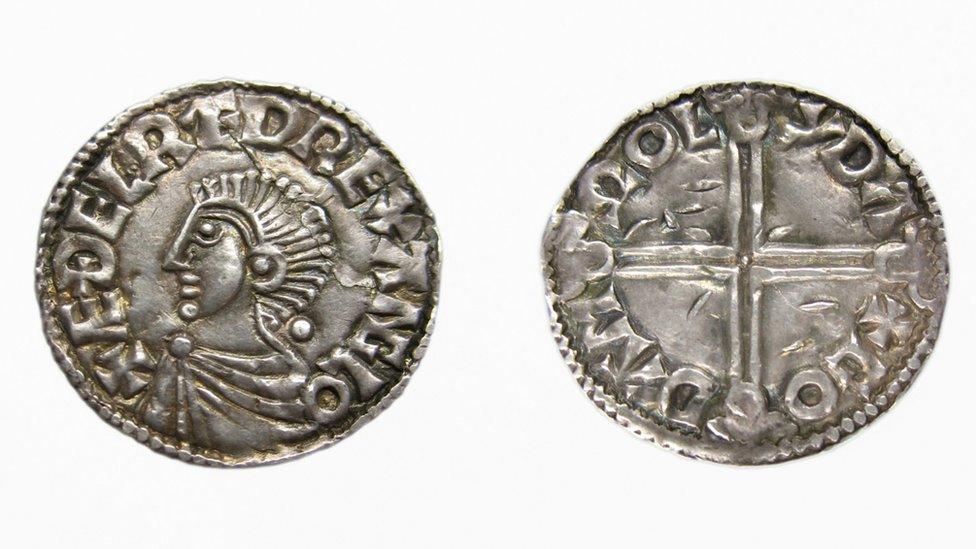
The coins date back to Anglo Saxon England where only one silver coin was in circulation
Three historic coins have gone on display at a museum on Dartmoor.
The Lydford Pennies are on "long-term loan" to Museum of Dartmoor Life from their owner, the Dartmoor National Park Authority.
They date back to as early as the Anglo Saxon period of 924 when King Athelstan decreed that a silver penny should be the only one in circulation.
None were produced after the Norman invasion in 1066.
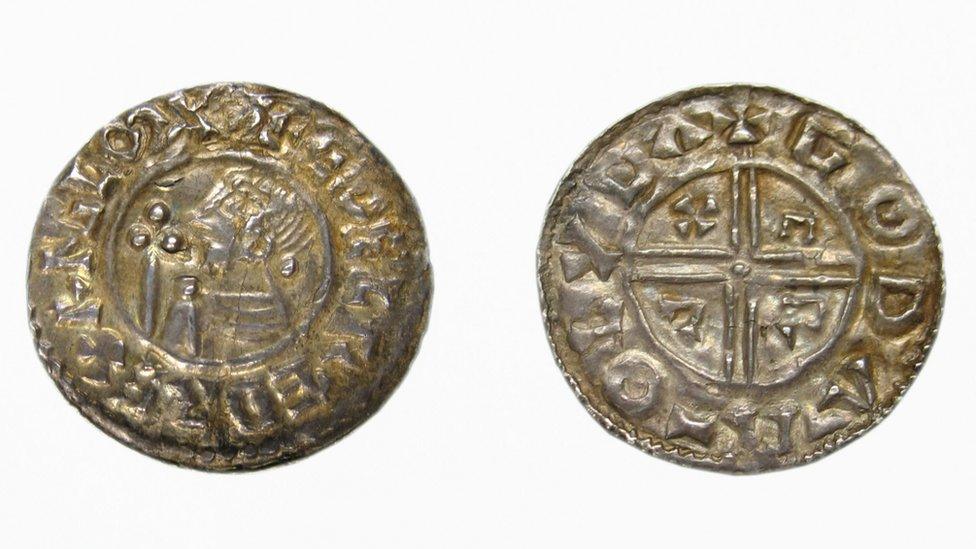
Images show each side of the three coins
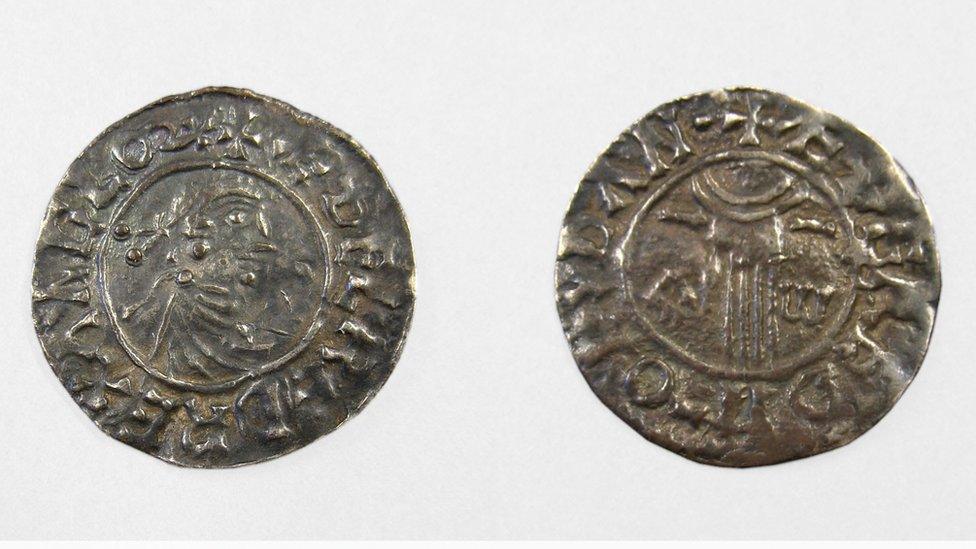
The coin displayed the location of the mint on the one side and the king's head appeared on the other side.
It is estimated that Lydford mint produced more than 1.5 million coins, but most ended up in Scandinavia because of a tax or tribute paid to the Viking invaders, in the hope of ensuring peace.
The Lydford mint was one of four Saxon mints in Devon - the others were in Exeter, Totnes and Barnstaple.
Lydford had the distinction of being a burh, a fortified town, since the time of King Alfred, Athelstan's grandfather.
Kristy Turner, manager and curator of the Museum of Dartmoor Life said a museum trustee approached the park authority about the coins as they "felt it would be great to share their story".
She said: "There are very few of these coins to be found in the UK, particularly on Dartmoor, as most were taken by the Vikings.
"It is wonderful to be able to share with our visitors something that was made in the 10th century."

Follow BBC News South West on Twitter, external, Facebook, external and Instagram, external. Send your story ideas to spotlight@bbc.co.uk, external
Related topics
- Published5 February 2023
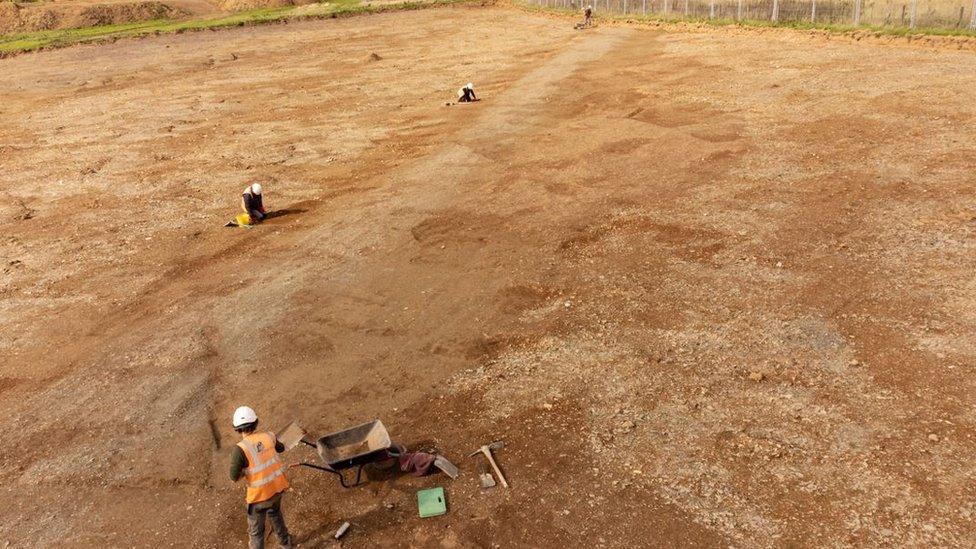
- Published5 December 2022
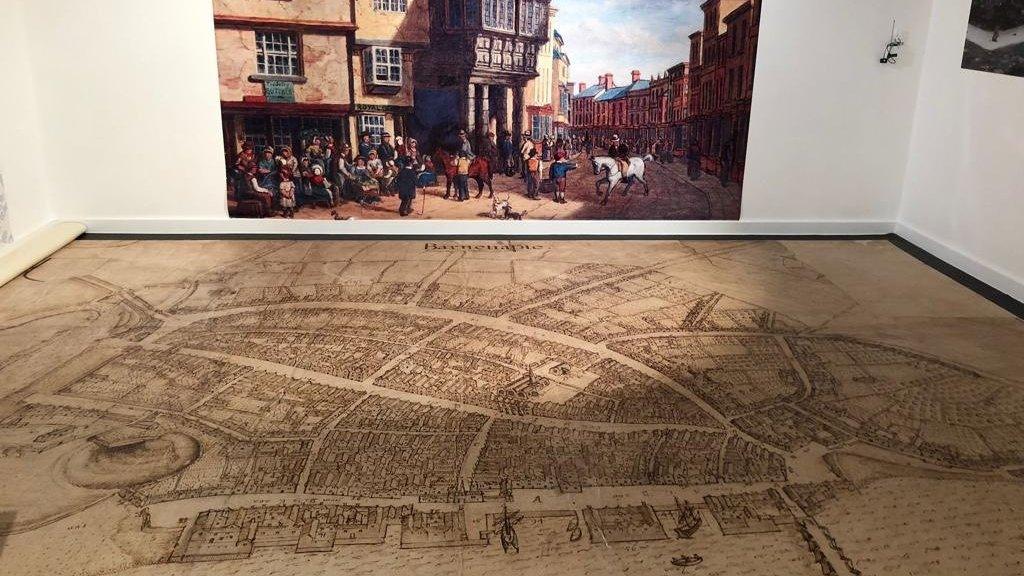
- Published18 August 2022
